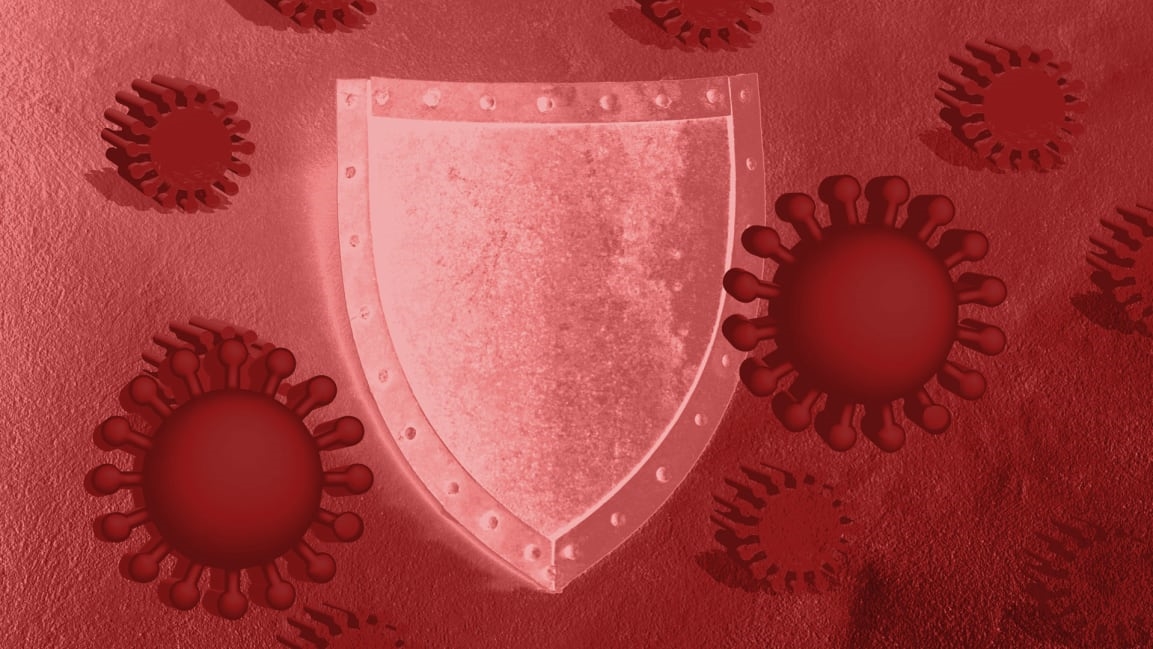8 science-backed ways to boost resilience during the COVID-19 crisis
Resilience, defined as the ability to adapt in a positive way in the presence of adversity, has been a topic of great interest for some time now, particularly within psychology. As countless studies show, resilience is a critical skill for reducing and managing stress and responding to emotional challenges, including traumatic life events. It’s what allows us to recover from difficulties and setbacks. If, as Nietzsche famously noted, what doesn’t kill you makes you stronger, then you can thank resilience.
From an early age, children differ in their baseline resilience, with some being more mentally tough than others even at the age of 3. Studies show that as much as 40% of the variability in people’s capacity for grit and resilience may be determined by biological factors. These differences are relatively stable and remain largely unchanged during adulthood, where they manifest in personality dimensions. People who are more emotionally stable, extraverted, open to new experiences, agreeable, and conscientious, are better equipped to cope with adversity. Sometimes, we call these people emotionally intelligent, a trait that has some things in common with resilience.
The only way to test our own resilience is through adversity itself, just like a crisis such as the COVID-19 pandemic is the ultimate test of a society’s vulnerability. You need stress to boost your resilience, but those who are most prone to experiencing stress are generally less resilient to begin with.
As Diane Coutu noted in an article for Harvard Business Review, resilience is a very useful career weapon, accounting for a great proportion of the variability between people’s career success across competence and expertise. “More than education, more than experience, more than training, a person’s level of resilience will determine who succeeds and who fails,” she wrote. “That’s true in the cancer ward, it’s true in the Olympics, and it’s true in the boardroom.” Resilience is particularly beneficial to women, with scientific reviews showing that increases in resilience will enhance health benefits in women more than men.
Regardless of your baseline level of resilience, you can boost it to become more resistant to setbacks. They will enable you to do this, just like lifting weights allows you to build muscle mass, no matter your level of strength. Academic studies show that cognitive-behavioral therapy, which helps people reframe their interpretation of events and adopt new patterns of habits and behaviors, as well as mindfulness, will significantly improve their resilience.
Find meaning
Unsurprisingly, resilience tends to increase when people have a sense of purpose. One of the most famous case studies for this was provided by Viktor Frankl’s gruesome account of his experience in a concentration camp during WWII. As he notes in Man’s Search of Meaning: “In a position of utter desolation, when man cannot express himself in positive action, when his only achievement may consist in enduring his sufferings in the right way–an honorable way–in such a position man can, through loving contemplation of the image he carries of his beloved, achieve fulfillment.” That fulfillment comes from finding meaning. As Charles Bukowski, who was arguably at the opposite positivity pole from Viktor Frankl, famously noted: “Find a passion and let it kill you.”
Get a coach, and if you can’t, get a mentor
Scientific studies suggest that one-on-one coaching is the most effective way to boost resilience. Of course, not everyone has the luxury of having access to a coach, but most people can pick a mentor. A great deal of evidence suggests that mentorship is an effective vehicle for boosting resilience. A mentor can be a work colleague, boss, friend, relative, partner, or acquaintance. You don’t need to interact with them regularly, or even in the physical world. Calls, emails, messages, and virtual meetings are just as good to help you interpret things in a different, more adaptive way, and get the reassurance you need to adjust to difficult times.
Practice mindfulness
Academic reviews suggest that mindfulness enhances resilience, so you should consider practicing it regularly. Not everyone is equally able to do this, and the benefits of mindfulness vary from person to person. In general, though, mindfulness–like spirituality, meditation, and religion–can help you find the critical levels of inner calm and strength to confront big external challenges.
Get more sleep
Sleep has been found to enhance resilience. Although stress and anxiety deteriorate sleep quality, sleep is more controllable than we think. It’s certainly easier to master than mediation. Being disciplined, going to sleep earlier, cutting down on TV time (particularly consuming morbid or negative news), exercising more, drinking less, and eating healthier, including earlier dinner time (allowing for better digestion), will improve your typical sleep quality.
Stay physically active
One of the big problems with the current shelter-in-place measures is that they restrict our level of physical activity. Research shows that regular exercise increases resilience capacity (even in animals), so it is unfortunate that we are limited in our ability to go outside and engage in physical activity. Nonetheless, most people will still find a way to stay active even indoors. In some instances, we can expect the new routines associated with working from home to enable people to be more active than they were at work.
Embrace optimism
Optimism is key to enhancing resilience. The good news is that we are prewired for it. One of the reasons for this is that optimism enables us to confront difficult situations and adapt to negative events, so it acts as a stress buffer. As neuroscientist Thali Sharot notes:
“We exhibit a pervasive and surprising bias: when it comes to predicting what will happen to us tomorrow, next week, or fifty years from now, we overestimate the likelihood of positive events, and underestimate the likelihood of negative events. For example, we underrate our chances of getting divorced, being in a car accident, or suffering from cancer.”
Ordinarily, our tendency to be overly optimistic can turn into a liability, leading us to underestimate threats, risks, and dangers, and distorting our sense of reality. But during difficult times few things are more vital than our ability to see the light at the end of the tunnel, even if it isn’t there yet. As Oscar Wilde famously said: “We are all in the gutter,
but some of us are looking at the stars.”
Nurture rewarding relationships
Building and maintaining positive interpersonal relationships tend to enhance resilience. And yet, during stressful times our ability to focus on others is often disrupted, leading us to become more self-centered, egotistical, and self-focused. You can break this natural tendency by focusing more on others and less on yourself. In particular, spend time–even if online–with those who have a positive effect on your mood, optimism, and mindset. Even more importantly, avoid spending time with, or dedicating much attention to, toxic people who have a negative effect on your mood and mental sanity.
Remember the power of humor
Although the flurry of lockdown and toilet paper jokes makes it hard to keep up and stay productive, we should remember that humor has enormous psychological benefits during anxious times. Few things are as cathartic as the right joke as the right time. Even when we know everything can be taken away from us, we still have our sense of humor, which is a strong sign of our inner resilience.
Even if you are feeling weak, make an effort to project strength
One of the best ways to restore our resilience is to fake it. We tend to look at impression management and attempts to “fake good” with disdain, but they are key ingredients of good social etiquette and adaptive interpersonal functioning. And when we are under a healthy degree of pressure to seem happy and composed in the eyes of others, we end up tricking our own system in turn.
This is never more clear than when you think of the reverse situation. No matter how sad you are, you will probably feel more miserable if you stay alone, ruminating over your own misery, feeling sorry for yourself, than if you force yourself to socialize and put on a performance of pseudo-normality to others.
(12)



